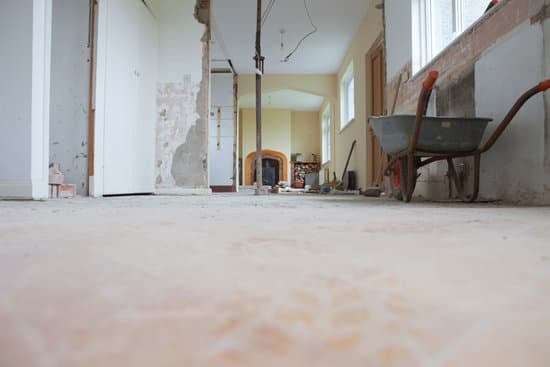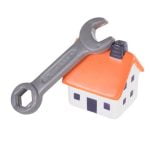Is it worth doing home improvements? This is a question that many homeowners grapple with when considering whether to invest in upgrades for their property.
In this article, we will explore the factors involved in making this decision and provide insight into the value of home improvements. From analyzing the return on investment to understanding the impact on property value and quality of life benefits, we will delve into the various aspects that homeowners should consider before starting home improvement projects.
Before diving into a major renovation or enhancement project, there are several key factors that should be carefully considered. These include budget constraints, the potential return on investment, and the impact on property value. By taking these factors into account, homeowners can make more informed decisions about whether it is worth investing in home improvements.
It’s important to understand that not all home improvements will provide a positive return on investment. Some projects may add substantial value to a property, while others may only offer minimal financial benefits. Additionally, home improvements can also enhance the quality of daily living for homeowners, providing intangible benefits that go beyond monetary value. Throughout this article, we will explore these considerations in detail to help you make well-informed decisions about your home’s future.
Factors to Consider Before Starting Home Improvements
When it comes to deciding whether or not to undertake home improvements, there are several factors that homeowners should consider. Before jumping into a renovation project, it’s important to take a step back and carefully evaluate the potential benefits and drawbacks. By doing so, homeowners can make informed decisions about the best course of action for their living space.
Current State of the Property
One of the first factors to consider before starting home improvements is the current state of the property. Take a close look at any areas that may need attention, such as outdated appliances, worn-out flooring, or peeling paint. Assessing the condition of the home can help prioritize which improvements are most urgently needed.
Long-Term Plans
Homeowners should also think about their long-term plans for the property. Are they planning to stay in the home for many years to come, or is it a short-term living situation? Understanding how long they plan to remain in the home can influence the types of improvements that are worth investing in.
Budget and Financing
Another crucial factor to consider is budget and financing options for home improvements. Homeowners should carefully evaluate their financial situation and determine how much they are willing and able to spend on renovations. Additionally, exploring different financing options, such as personal loans or home equity lines of credit, can provide flexibility when it comes to funding improvement projects. Understanding these financial considerations is essential for making informed decisions about which improvements are feasible and financially responsible.
Considering these factors before starting home improvements can help homeowners determine whether investing in renovations is worth it for them personally and financially. Each homeowner’s situation is unique, so taking these factors into account can lead to more thoughtful and beneficial improvement decisions.
Cost vs Value
When considering whether home improvements are worth the investment, it’s important to weigh the costs against the potential value they can add to your property. Here are a few factors to keep in mind:
1. Cost-benefit analysis: Before embarking on any home improvement project, it’s crucial to conduct a cost-benefit analysis. This involves estimating the total cost of the project and comparing it to the potential increase in property value. This will help you determine if the investment is financially viable in the long run.
2. Return on investment (ROI): Certain home improvements have a higher ROI than others. For example, kitchen and bathroom renovations often yield a high return, while swimming pools or luxury upgrades may not provide as much added value. It’s important to research which improvements are likely to have the highest ROI in your specific market before making any decisions.
3. Consideration of market trends: The real estate market is constantly evolving, and certain home features may become more or less desirable over time. Keeping an eye on current market trends and consulting with a real estate professional can help you make informed decisions about which home improvements are likely to pay off in terms of property value.
The Impact of Home Improvements on Property Value
Home improvements can have a significant impact on the value of your property. Whether you are looking to sell your home in the near future or simply want to increase its resale value, making strategic upgrades and renovations can pay off in the long run. When considering which home improvements to prioritize, it is important to take into account the potential return on investment (ROI) as well as the current market trends.
Factors to Consider:
- Location: The location of your property plays a crucial role in determining the value of home improvements. For example, adding a swimming pool may significantly increase the value of a home in a warm climate, but may not have the same impact in a colder region.
- Market Trends: It is essential to stay up-to-date with current market trends and buyer preferences. For instance, open floor plans, energy-efficient features, and updated kitchens and bathrooms tend to attract more buyers and increase property value.
- Quality of Work: The quality of the workmanship and materials used for home improvements is also a key factor. Skilled craftsmanship and high-quality materials can contribute to a higher property value, while subpar work may have the opposite effect.
Cost vs. Value Analysis:
Before embarking on any major home improvement projects, it is advisable to conduct a cost vs. value analysis. This involves evaluating the upfront cost of the improvement against its potential added value to your property. Generally, kitchen and bathroom remodels, curb appeal enhancements such as landscaping and exterior paint, as well as adding square footage through additions or finished basements tend to offer a favorable ROI.
Quality of Life Benefits
When considering whether to invest in home improvements, it’s important to take into account the impact it can have on your quality of life. Improvements to your home can enhance daily living in a number of ways, making it a more comfortable and enjoyable space for you and your family.
Whether it’s a simple upgrade like installing new energy-efficient windows or a more extensive renovation such as adding a deck or patio, these improvements can make a big difference in how you experience your home.
Enhanced Comfort and Functionality
One of the key benefits of home improvements is the enhanced comfort and functionality they can provide. For example, updating your heating and cooling system can lead to better temperature control throughout your home, creating a more comfortable environment year-round. Similarly, remodeling your kitchen to include more storage and workspace can make meal preparation and entertaining more enjoyable. These improvements can ultimately improve the overall functionality of your home, making day-to-day activities easier and more convenient.
Improved Health and Well-Being
In addition to enhancing comfort and functionality, certain home improvements can also have a positive impact on your health and well-being. For instance, investing in better insulation and air sealing can lead to improved indoor air quality by reducing allergens and pollutants.
Adding features like a dedicated exercise space or a backyard garden can also contribute to better physical health by promoting regular exercise and access to fresh produce. By prioritizing these types of improvements, homeowners can create a living environment that supports their overall health and well-being.
Enhanced Enjoyment of Your Home
Finally, home improvements can simply make your home a more enjoyable place to live. Whether it’s refreshing the paint colors throughout your house or creating an outdoor living space with landscaping enhancements, these improvements can enhance the aesthetics of your surroundings.
Additionally, adding amenities such as outdoor kitchens or updated bathrooms can create spaces that are not only functional but also inviting for leisure activities. Ultimately, investing in these types of upgrades is an investment in enjoying an enhanced quality of life within the comforts of your own home.
DIY vs Professional Services
Investing in home improvements can significantly enhance the overall value and appeal of your property. However, one question that often arises is: is it worth doing home improvements yourself or should you hire professional services? There are several factors to consider before making a decision, including cost, time, expertise, and the scale of the project.
One key factor to consider when deciding between DIY and professional services is the scope of the project. While simpler tasks like painting or minor repairs can often be successfully completed by homeowners themselves, larger or more complex projects such as remodeling a kitchen or bathroom may require the expertise and skills of a professional. Assessing your own abilities and limitations is crucial in determining whether DIY or professional services are more suitable for your home improvement goals.
Cost is another significant consideration when contemplating home improvements. While opting for DIY may appear to be more cost-effective at first glance, it’s important to factor in the value of your time, potential mistakes that could end up costing more in the long run, and the price of purchasing or renting specialized tools and equipment.
On the other hand, hiring professional services may come with a higher initial expense but can ultimately save time and ensure high-quality results.
Lastly, it’s essential to weigh the potential risks involved in undergoing home improvement projects without professional assistance. Mistakes made during DIY projects can lead to costly repairs down the line, while professionals can offer guarantees on their workmanship. Balancing these pros and cons will help determine whether taking on home improvements yourself or hiring professionals is the most worthwhile option for your specific needs.
| Factors to Consider | Diy | Professional Services |
|---|---|---|
| Scope of Project | Suitable for simpler tasks | Required for larger or complex projects |
| Cost | Initial lower cost but potential for higher long-term costs | Higher initial expense but saves time and ensures quality results |
| Risks | Potential mistakes leading to costly repairs | Professionals offer guarantees on workmanship |
The Environmental Impact of Home Improvements
One major consideration is the use of sustainable materials and energy-efficient products in home improvements. Using eco-friendly materials such as bamboo, reclaimed wood, or recycled glass can help reduce the overall environmental impact of your project. Additionally, investing in energy-efficient appliances, windows, and insulation can lead to lower energy consumption and decreased greenhouse gas emissions.
On the other hand, some home improvement projects can generate a significant amount of waste. Whether it’s old flooring, cabinets, or construction debris, proper disposal of these materials is essential for minimizing environmental impact. Working with contractors who prioritize recycling and responsible waste management practices can help mitigate this issue.
Lastly, transportation and logistics should be taken into account when planning home improvements. Consider the distance that materials need to travel to reach your property and choose local suppliers whenever possible to reduce carbon emissions associated with transportation.
Considering the environmental impact of home improvements is crucial for homeowners who want to make sustainable choices for their properties. By prioritizing eco-friendly materials, responsible waste management, and efficient logistics, you can minimize the negative effects of home improvements on the environment while still enjoying the benefits of a updated living space.
| Positive Environmental Impact | Negative Environmental Impact |
|---|---|
| Use of sustainable materials | Generation of waste |
| Energy-efficient products | Transportation emissions |
Conclusion
In conclusion, the decision to invest in home improvements is a multifaceted one that requires careful consideration of various factors. It entails weighing the cost of renovations against the potential increase in property value and quality of life benefits. Furthermore, it involves understanding the environmental impact of home improvements and deciding whether to tackle projects through DIY efforts or professional services.
When contemplating whether it is worth doing home improvements, homeowners must take into account their long-term goals for their property. While some upgrades may provide a high return on investment and enhance daily living, others may not yield significant benefits. Therefore, conducting thorough research and seeking professional guidance can help individuals make informed decisions about which projects to prioritize.
Ultimately, while embarking on home improvements is an investment that should be carefully considered, it can bring about positive outcomes in terms of property value appreciation and improved living conditions. By weighing the costs and benefits of each project, homeowners can ensure that their efforts are aligned with their goals for their home’s future.
Making well-informed decisions will enable individuals to create spaces that not only reflect their personal preferences but also contribute to the overall value and appeal of their properties.
Frequently Asked Questions
Are Home Renovations Worth the Money?
Home renovations can be worth the money if they add value to the property or improve the quality of living. For example, renovating a kitchen or bathroom often has a good return on investment.
Are Home Improvements a Good Investment?
Home improvements can be a good investment if they enhance the functionality, aesthetics, or energy efficiency of the home. Quality improvements can increase the property’s value and make it more attractive to potential buyers.
What Is the Most in Demand Home Improvement?
The most in-demand home improvement varies by region and market trends. However, kitchen renovations are consistently popular as they can significantly increase a home’s value and appeal to potential buyers. Other in-demand improvements include energy-efficient upgrades and outdoor living spaces.

I’m thrilled to have you here as a part of the Remodeling Top community. This is where my journey as an architect and remodeling enthusiast intersects with your passion for transforming houses into dream homes.





